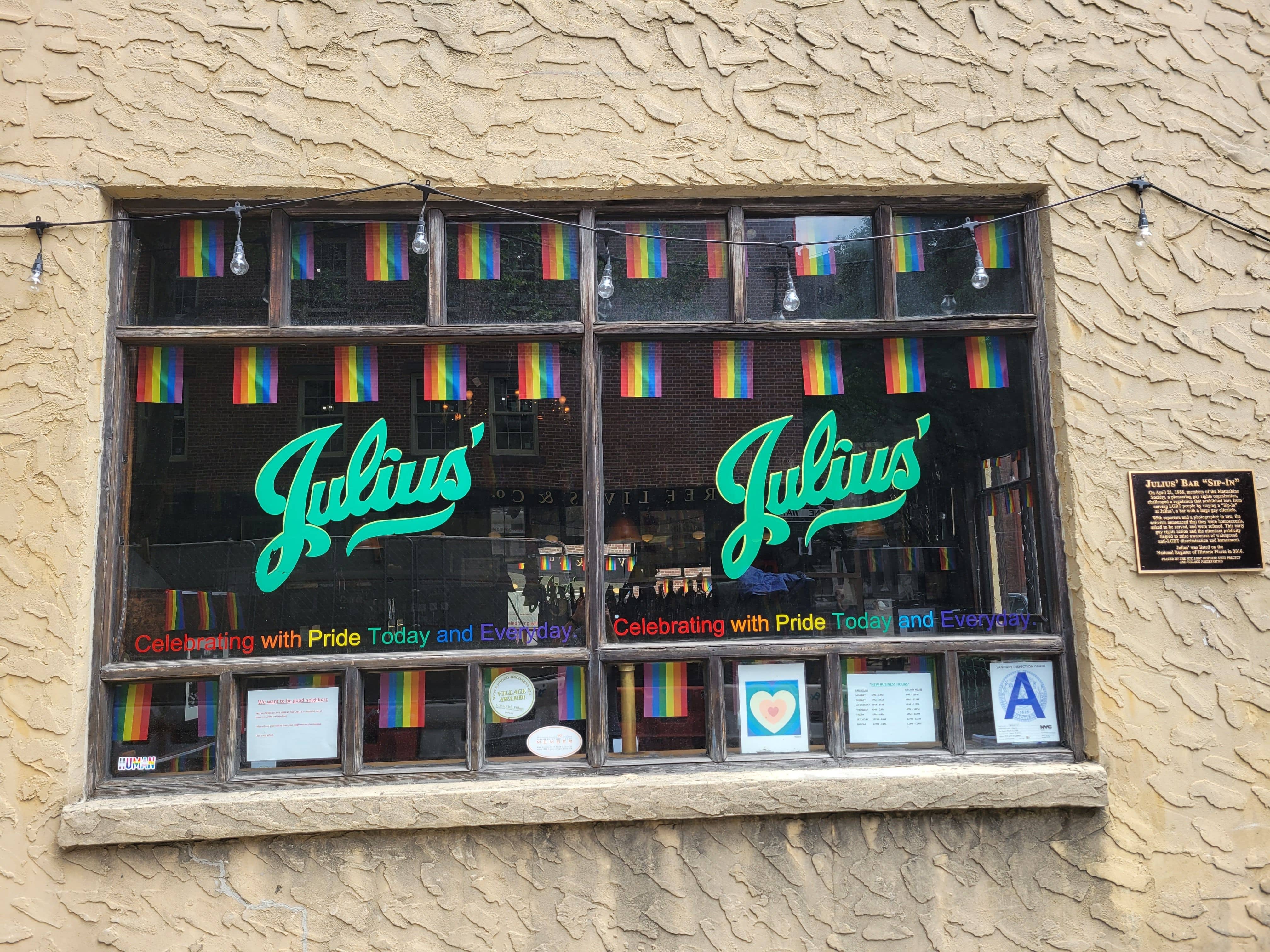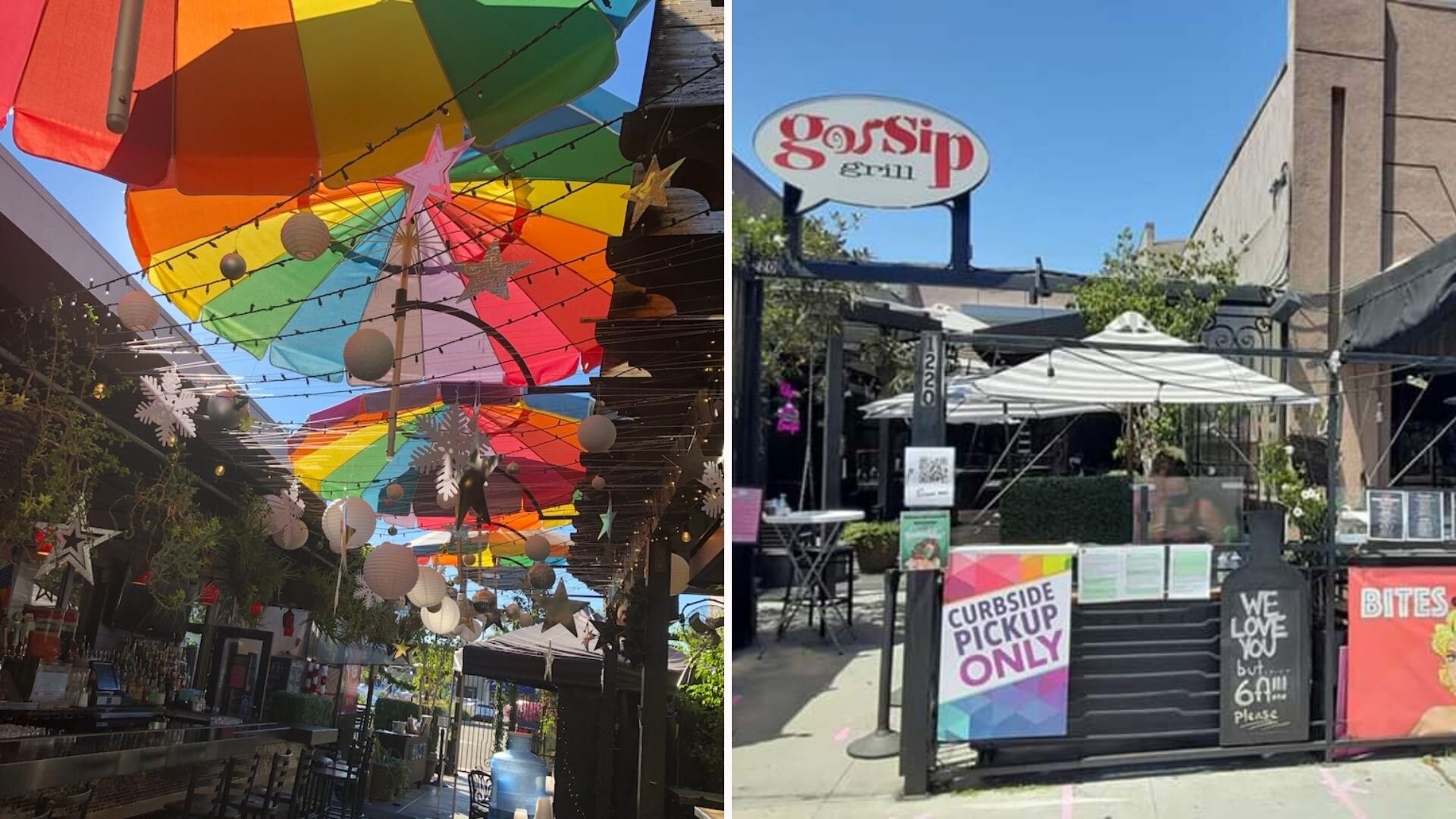“Hire diverse staff who look like the guests that are dining. When I see queer people working in a restaurant, I automatically feel welcome because I see myself in them.”
- Schwa De Vivre, a winner of Chopped and an online cooking class host
Marketing Insights
JUN 24, 2022
Share
The restaurant industry is the second largest employer in the U.S., with nearly 15 million employees. Amongst this workforce are LQBTQ+ employees; in 2022 there is more awareness around LQBTQ+ inclusivity and support in the workplace, but more needs to be done. Those who are a part of the LGBTQ+ community still face discrimination and harassment in the workplace on a daily basis.
June is Pride Month, and this yearly celebration is a way to honor the 1969 Stonewall Uprising in Manhattan (a tipping point for the Gay Liberation Movement) and commemorate the impact that lesbian, gay, bisexual and transgender individuals have had on history. Many restaurants chose to celebrate the LGBTQ community this month, while other establishments are dedicated to being LGBTQ-friendly restaurants and community gathering spaces all year long.

Julius' Bar is the site of the April 21, 1966 “sip-in”, which was a public protest against state law that prohibited LGBTQ+ people from being served alcohol in bars and restaurants. Source: Julius’, 2022
LGBTQ establishments are more than just a place to grab a drink or bite to eat. In a heterosexual, cisgender dominant world, they are safe and welcoming places for those in the LGBTQ community. Gathering places for certain groups, like LGBTQ+, are key for creating community, offering support, and increasing public awareness.
According to Google, prior to the global spread of COVID-19, January 2020 saw an all-time high interest for “LGBTQ friendly''. By March 2020, there was a drastic drop in this search term. After the closure of many small businesses, including queer-owned and operated ones, LGBTQ+ friendly restaurants are more important than ever.
Despite past and present challenges, queer-owned/operated and LGBTQ+ friendly restaurants continue to demonstrate resilience and provide inclusive gathering spaces. On top of this, several restaurant groups and chains have made efforts to ensure that their workplaces and dining areas are safe and welcoming to marginalized groups. As a restaurant owner or operator, you can create an environment that welcomes all (read more to find out how!).
Restaurants and food have always brought people together. No matter what background or culture one comes from, food can provide a common thread and point of connection. Sharing a meal is a universal expression of unity and peace; therefore, restaurants should create an environment that ensures that marginalized communities feel welcome, at peace, and safe.
Even if you are not a part of the LGBTQ community, you can create a space that is welcoming and supportive to those who identify as so. This allyship and inclusivity can be built in for employees in both the front and back-of-house, as well as for customers. How exactly can your establishment be a more inclusive space? Here are just a few ideas:
Prioritize language - When bringing on new employees or working with staff, do not assume their pronouns. Always ask what your employee’s pronouns are, what name they prefer to go by, and share your own preferences. Be sure that employee rules and other writing throughout the restaurant is gender inclusive.
Gender neutral bathrooms - Gendered bathrooms typically only support two genders, so consider offering gender neutral bathrooms in your establishment. Often, this is an easy change; signs can be switched on the outside of each bathroom, and feminine products can be added to each.
No discrimination policy - It is highly important to include in your restaurant’s mission statement and training to be inclusive and protective. It should be clear amongst all staff that there is no tolerance for discrimination, and that there is no discrimination against gender identity or sexual orienation during the hiring process.
Google attributes - Google allows restaurants to list certain attributes on their business listing. Two that your restaurant can include are “LGBTQ-friendly” and “Transgender safe”. Your business can also list if it offers gender neutral bathrooms.
Protection for trans people - Your restaurant should have a zero tolerance policy for harassment, discrimination, or derogatory comments and jokes against trans people. For trans people, discrimination in the workplace has always been an unfortunate reality. Despite strides to make it illegal to discriminate against sexual orientation or gender identity, discrimination and harassment in the workplace against trans people happens on a daily basis.
Job description and hiring process - If your establishment is an LGBTQ-friendly restaurant, let it be known! Job postings for your restaurant can encourage trans, lesbian, gay, bisexual, non-binary, and queer to apply. Emphasize that your establishment is an inclusive workplace with zero tolerance for harassment or discrimination, and offers equal opportunity for growth. Schwa De Vivre, a winner of Chopped and an online cooking class host, recommended that restaurants “Hire diverse staff who look like the guests that are dining. When I see queer people working in a restaurant, I automatically feel welcome because I see myself in them.”
“Hire diverse staff who look like the guests that are dining. When I see queer people working in a restaurant, I automatically feel welcome because I see myself in them.”
- Schwa De Vivre, a winner of Chopped and an online cooking class host
Most importantly, listen to your LGBTQ+ employees and customers. They will likely have insight on how to make your space more inclusive and may have ideas that didn’t even cross your mind.
It is very likely that those who identify as LGBTQ+ have experienced discomfort, or even felt unsafe because of their identity at some point in their lives. That is why when these individuals and groups dine at a restaurant with friends, family, or on a date, they should feel comfortable and welcome.
It should be noted that “rainbow capitalism” or “rainbow washing” is something that definitely occurs during pride month. This is the attempt by corporations to make a big show of LGBTQ+ allyship to make a profit from specialty products offered during Pride Month. In recent years, this has become more popular because now, it is “less risky” to openly support the LGBTQ+ community and same-sex marriage. For example, according to the Pew Research Center polling in 2004, 60 percent of Americans opposed same-sex marriage; in 2019, 61 percent of Americans reported that they supported same-sex marriage.
It can be complicated to sort through and determine which foodservice establishments are actually LGBTQ+ friendly places for both customers and employees. A great place to start is listening to and reading articles by LGBTQ+ voices. Look past showy campaigns and see what campaigns and political figures corporations are donating their money to (performative allyship is unfortunately more commonplace than you’d like to think). The Human Rights Campaign’s Corporate Equality Index can show what establishments provide the most inclusive workplaces.
With that being said, what restaurants support the LGTBQ+ community? Throughout the country, there are many establishments that are genuinely LGBTQ+ friendly for both customers and employees, including both independents and chains. Here are just a few:
Olive Garden
Olive Garden is owned by Darden Restaurants, which ranks a score of 100 on the Human Rights Campaign’s Corporate Equality Index. There are five categories in this ranking, including non-discrimination policies, employment benefits, public commitment to LGBTQ equality, organizational competency and accountability around LGBT diversity and inclusion, and responsible citizenship.
Shake Shack
Shake Shack partnered with The Trevor Project, the world’s largest suicide prevention and intervention organization for LGBTQ young people. The QSR chain offered a Pride Shake last year for the month of June and donated 5 percent of sales from this item to the organization (with a minimum donation of $50,000). The company scored 100 percent on Human Rights Campaign’s Corporate Equality Index for the third year in a row, and launched an employee resource group called HEROIQ+ (which stands for Helping to Educate Regarding Orientation, Identity & Queerness+).

A percentage of sales from Shake Shack’s Pride Shake (made with strawberry and blackberry frozen custard, topped with a mango and passion fruit blend, whipped cream, and rainbow glitter) went to The Trevor Project. Source: Shake Shack, 2021
Big Gay Ice Cream
Big Gay Ice Cream started as a food truck in 2009, and is now frequently named one of the best ice cream parlor in the country. Founded by Douglas Quint and Bryan Petroff (who have also written a cookbook), the ice cream parlor serves bold and whimsical soft-serve flavors. The company gives back to LGBTQ+ organizations, animal shelters, and homeless shelters in New York (where it is based).
Third Culture Bakery
With locations in Colorado and California, Third Culture Bakery is a queer and immigrant-owned bakery that serves mochi donuts, muffins, and matcha. This bakery is gluten-free and uses mochiko rice flour for its one-of-a-kind creations (the bakery also ships nationwide!).
Bloodroot
Based in Bridgeport, Connecticut, Bloodroot is a feminist bookstore and restaurant that serves up vegan and vegetarian dishes. The lesbian, women-owned establishment was opened in 1977, and it offers a constantly changing seasonal menu and an inclusive community space.
JenniVee’s Bakery
Founded by Jenni Vee, a baker who immigrated from the Philippines to the U.S., JenniVee’s is a bakery in Chicago that offers a wide variety of American and Filipino pastries and cakes. The LGBTQ+ owned and operated business is a welcoming space for all to enjoy cookies, cupcakes, brownies, slices of cake, and coffee (and it’s even open late night!).
5. Shakewell
Created by queer Top Chef alum Chef Jen Biesty and GM Tim Nugent, Shakewell is a Mediterranean and Spanish inspired concept located in Oakland. The establishment is known for its fun, casual dining room, handcrafted cocktails, paellas, flatbreads, and tapas.
There are a ton of other queer-owned, independent restaurants and foodservice operations throughout the country. To find one near you, check out OpenTable’s locator and EAT QUEER, which are listed below.
With only 21 Lesbian bars left in the country after the detrimental impacts of the pandemic, the Lesbian Bar Projects aims to highlight the importance of creating a space for marginalized genders. The project released a 20 minute documentary to raise awareness around the decline of queer spaces, encourage viewers to support these establishments, and also raise money to support these businesses. A four week fundraising campaign set up by the project raised $117K for the bars.

Gossip Grill is a queer-owned bar based in San Diego, California. Source: The Lesbian Bar Project, 2022
Looking to support LGBTQ restaurants across the country? Take a look at OpenTable’s map tool to find exactly that. This map tool makes it easy to see where these establishments are located, and what they serve.
Managed by the founders of indie queer food journal, Jarry, EAT QUEER is an online publication that highlights queer-owned restaurants and establishments throughout the country. Restaurants and food service operations can submit to be featured here. Readers can recommend their favorite queer spots and why they love it.
It’s June, and that means Pride Month celebrations are now in full swing. Many restaurants will celebrate the month with specials, and events, and post their support on social media. This is a great place to start, but restaurant owners and operators can do more to ensure that their establishments are inclusive of the LGBTQ+ community. Schwa de Vivire said it best, “Queer people deserve to move in and out of any space. When a restaurant feels inclusive, it allows me to truly relax and enjoy the dining experience. Also, feeling comfortable in a space is just as important to me as the food tasting good, and I will return again and again if both boxes are checked.”
ENTER YOUR EMAIL TO STAY IN THE KNOW!